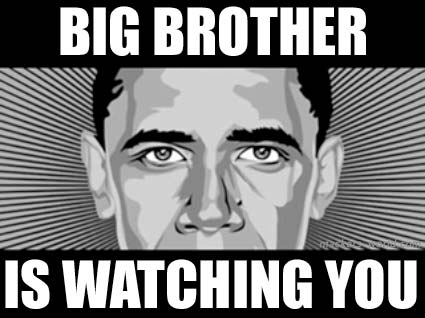Edited by Kyrstie Lane

Access to telephone company databases, permission to search private information on large social networks and other dubious activities carried out by the United States’ intelligence agencies have sent President Barack Obama to the pillory.
The strongest critics, after becoming aware of the leak that uncovered the crisis, place it on the level of Orwell’s Big Brother. It is a thorny issue that is worrisome and merits careful consideration.
As the magnitude of the network of activities developed by the northern country’s National Security Agency comes to light, this appears to be the most complex situation experienced by the president since he took office — and no wonder. The United States, despite its drawbacks, prides itself on defending individual freedoms as one of its most sacred assets. Individual privacy, established in the Fourth and Fifth Amendments, was called into question by George W. Bush after Sept. 11, 2001 in the interests of the war on terror. In part a reaction to the outrages committed, including the creation of the prison at Guantánamo, the torture of detainees and arbitrary retention of suspects, among other gems, Obama emerged as an alternative for change. Hence the puzzlement of those who trusted in his liberal-mindedness only to now see that, apparently, many things changed merely to remain the same.
A young computer genius, linked to the intelligence services, was responsible for opening up Pandora’s box and exposing a program named PRISM that allowed meddling in personal communications under the pretext of security. Even beyond the gap in the government’s own security with the famous WikiLeaks, and now this latest news, the underlying theme had been broached some weeks earlier as the call database of Associated Press journalists had been under investigation by the security services. This is considered an extremely serious incursion on the exercise of journalistic freedom and the very sacred protection of the source, the same that we defend rigorously in our daily trade.
Concerns are increasing now that the dimensions of the issue are known because it creates a very dangerous precedent despite the good intentions that the president may have. Obama hastily came out to say that surveillance of private conversations has not been carried out. The measures taken were carried out with legal support and with Congress’ prior knowledge, and the ultimate purpose is justified because, as he stated: “You can’t have 100 percent security and also then have 100 percent privacy.” What is the price we are willing to pay, he asks, in order to achieve the security of all citizens? This is the difficult paradox posed by the occupant of the White House.
Since Richelieu formally advanced the concept of the national interest, the same has been sufficient for all. There are those who argue, not without reason, that the legality of the measure is questionable because its authorization comes from a Foreign Intelligence Surveillance Act court. Critics believe FISA operates in the shadows, is little known and its decision to monitor the databases and communication networks of firms such as Verizon, Google, Apple and Facebook violates the Fourth Amendment.

Leave a Reply
You must be logged in to post a comment.